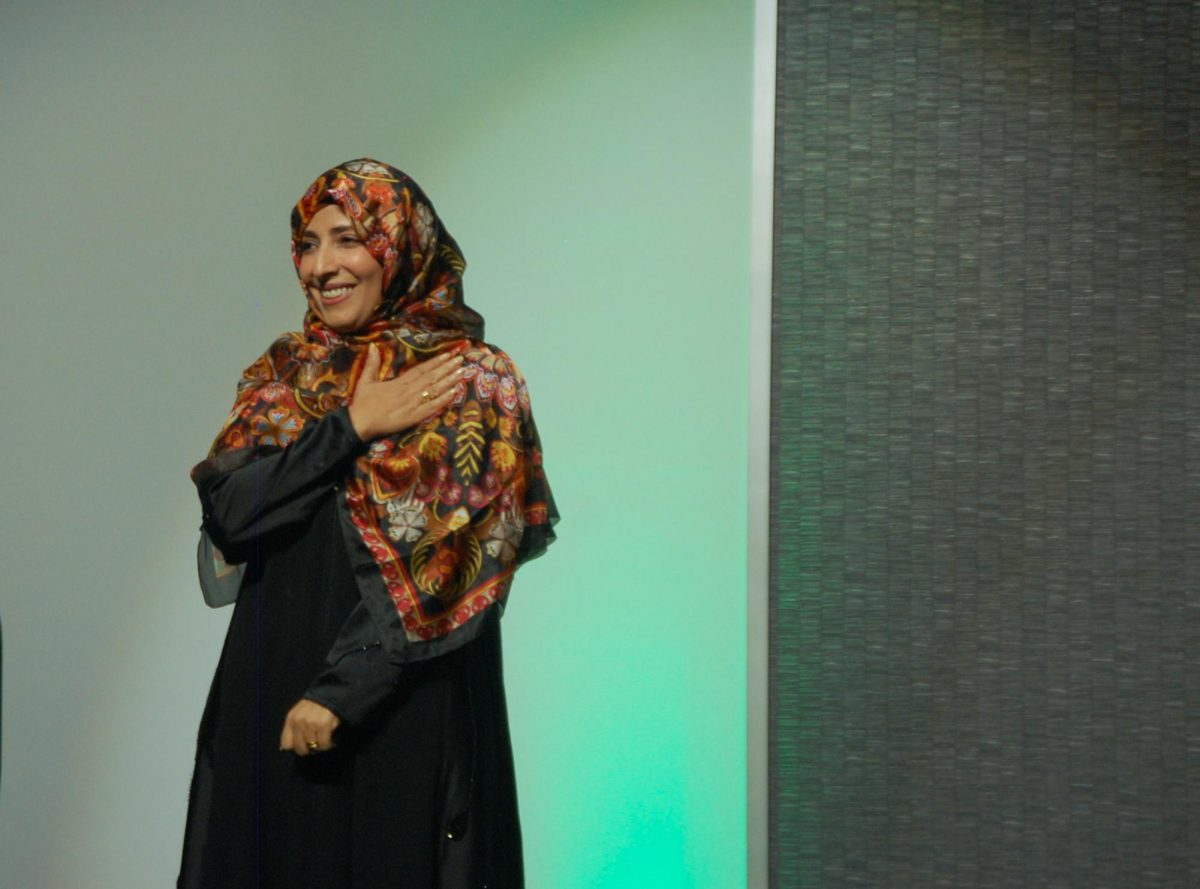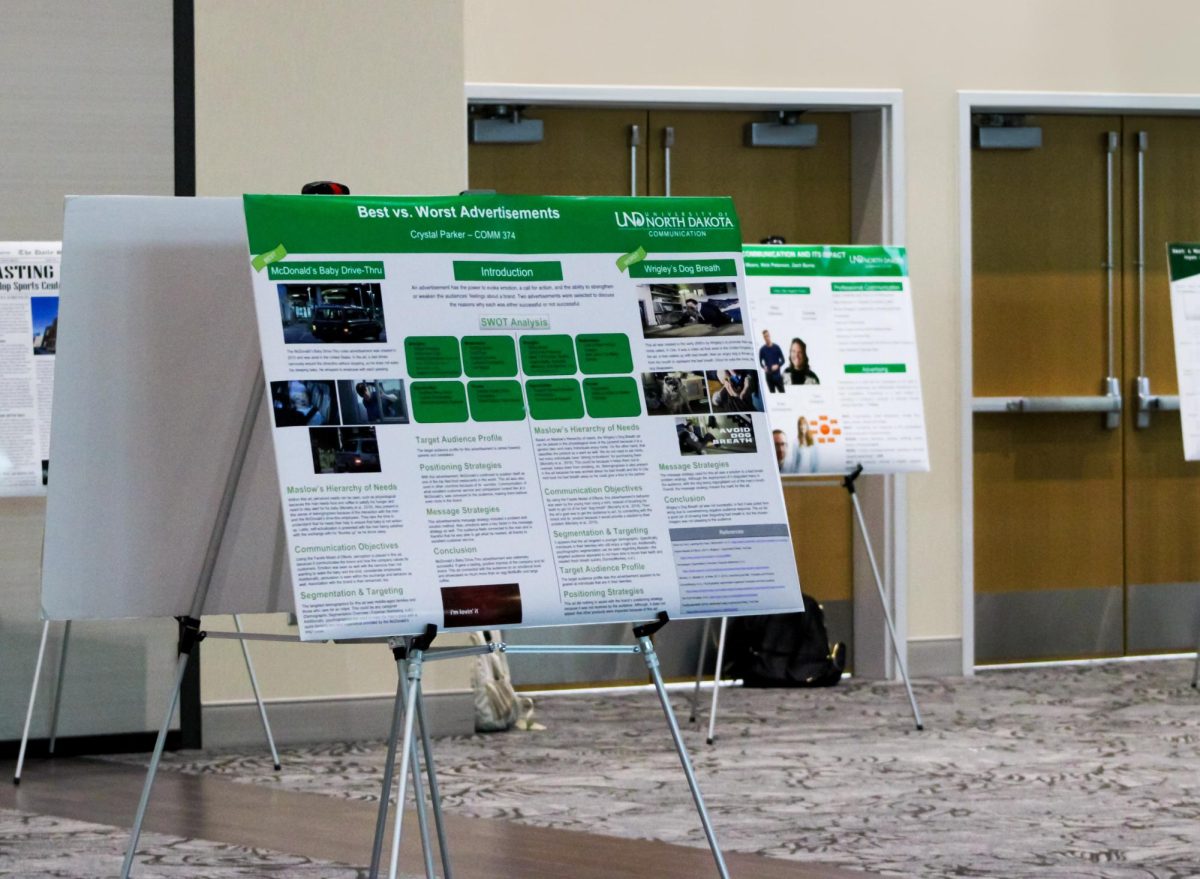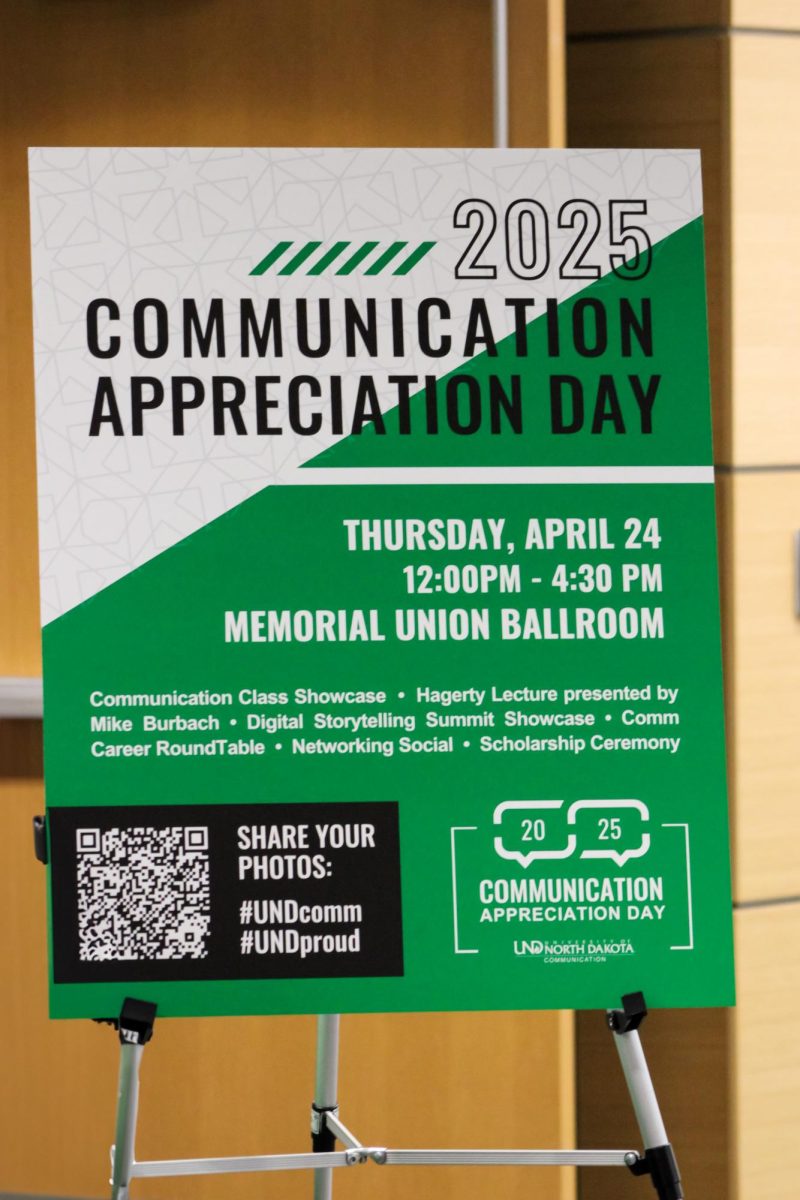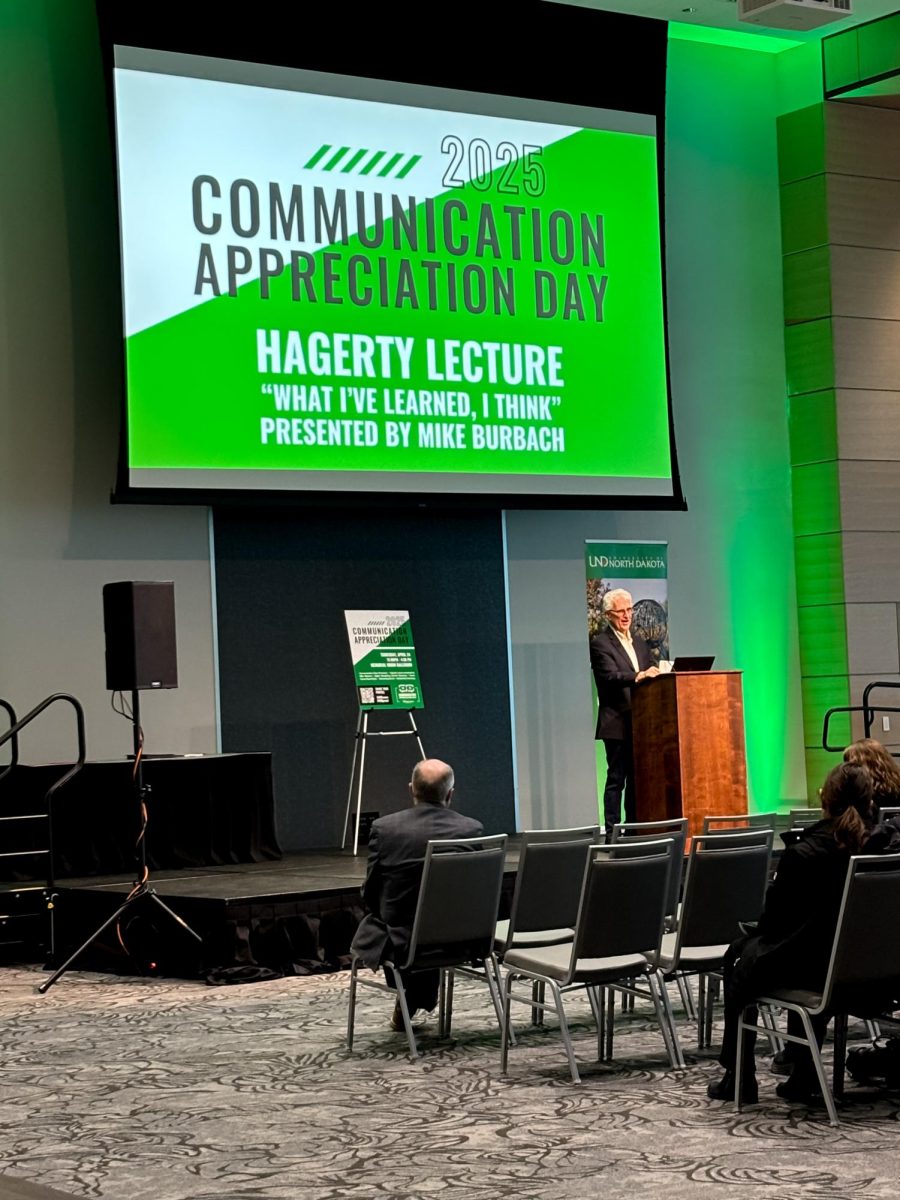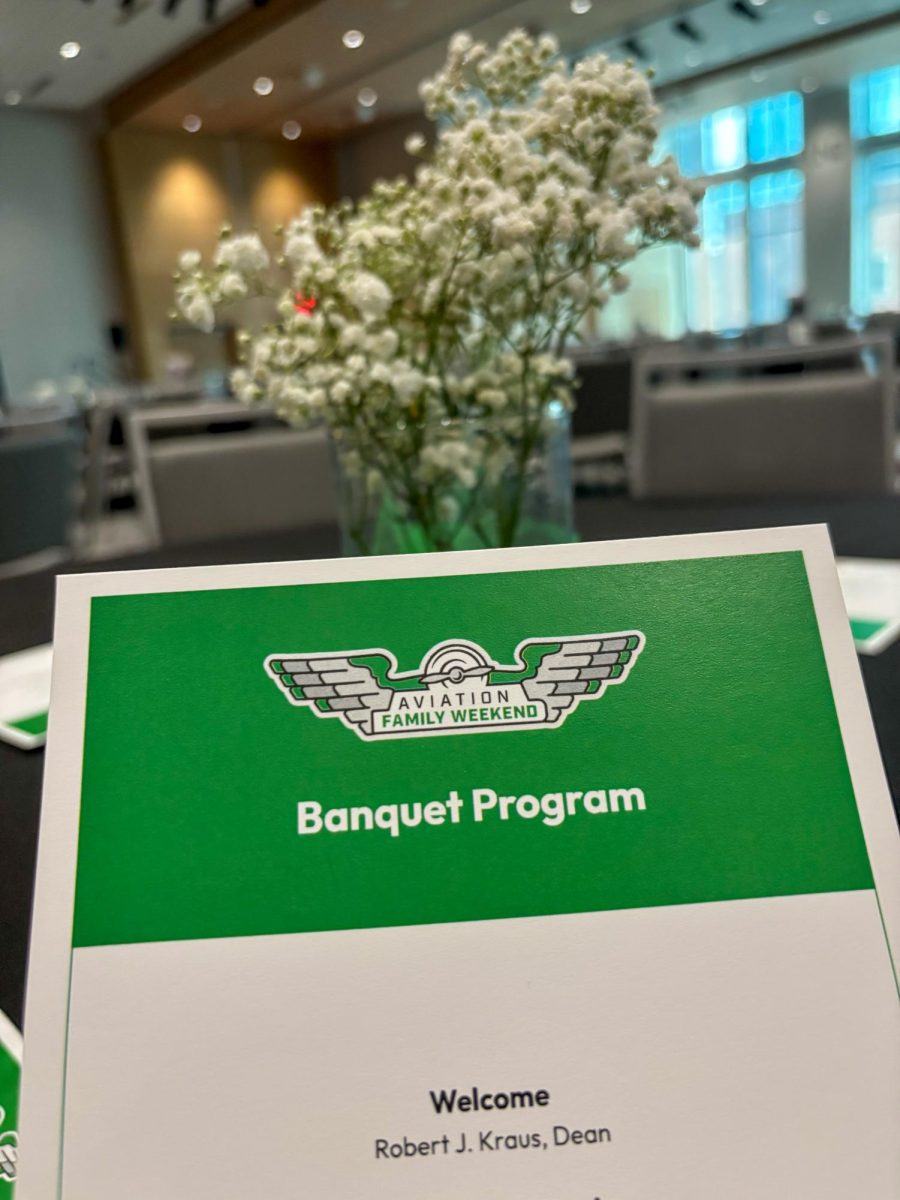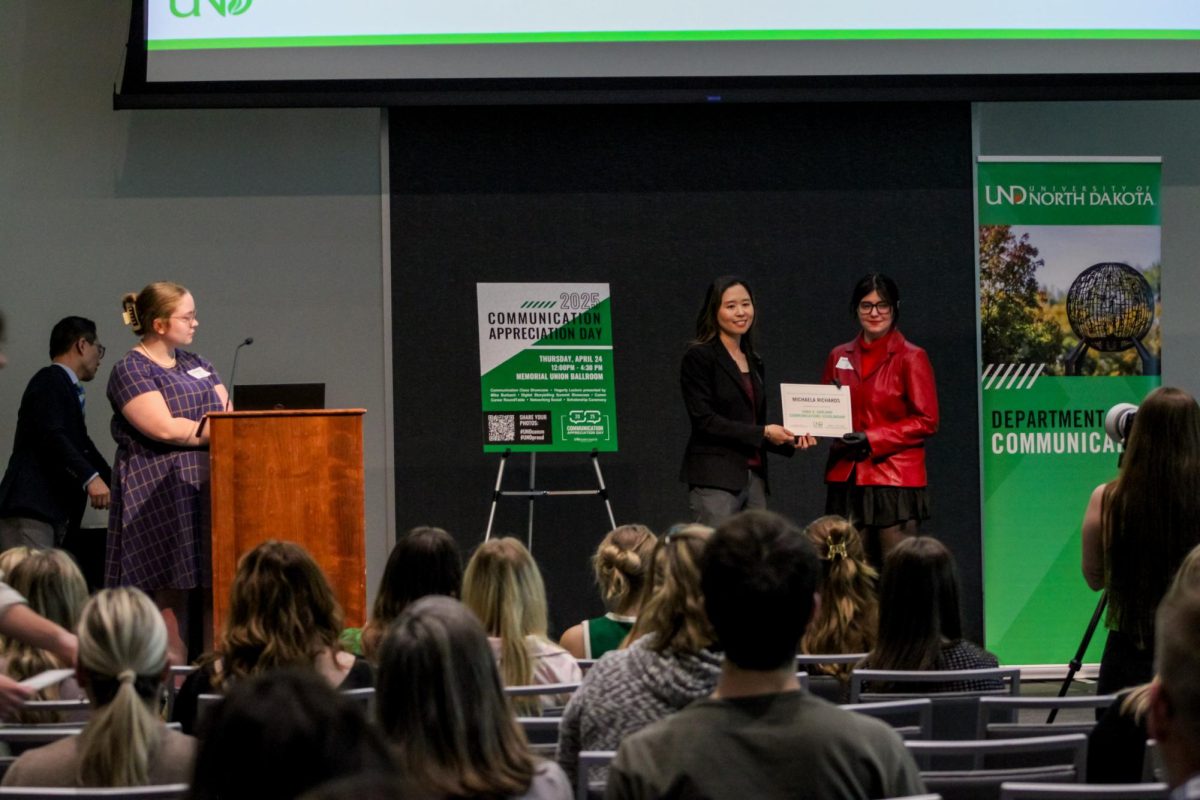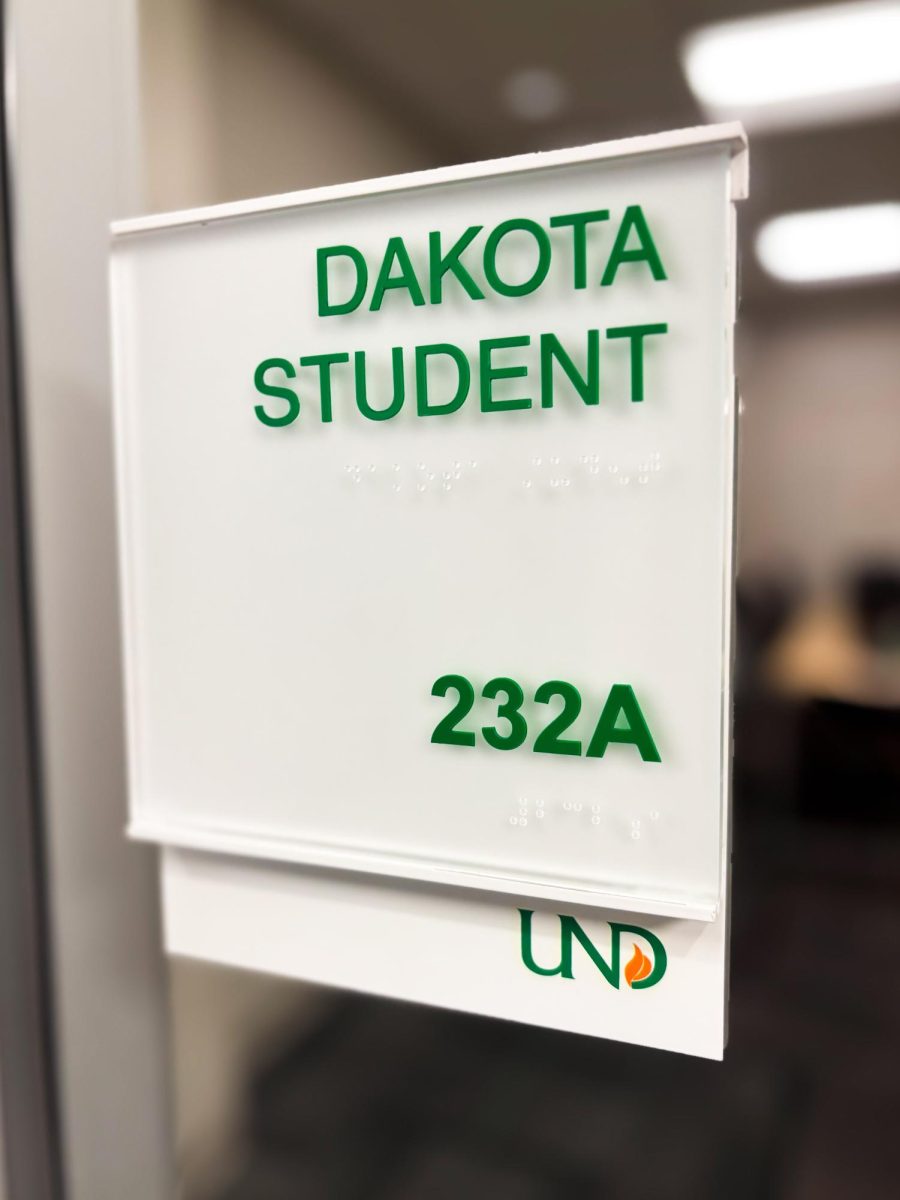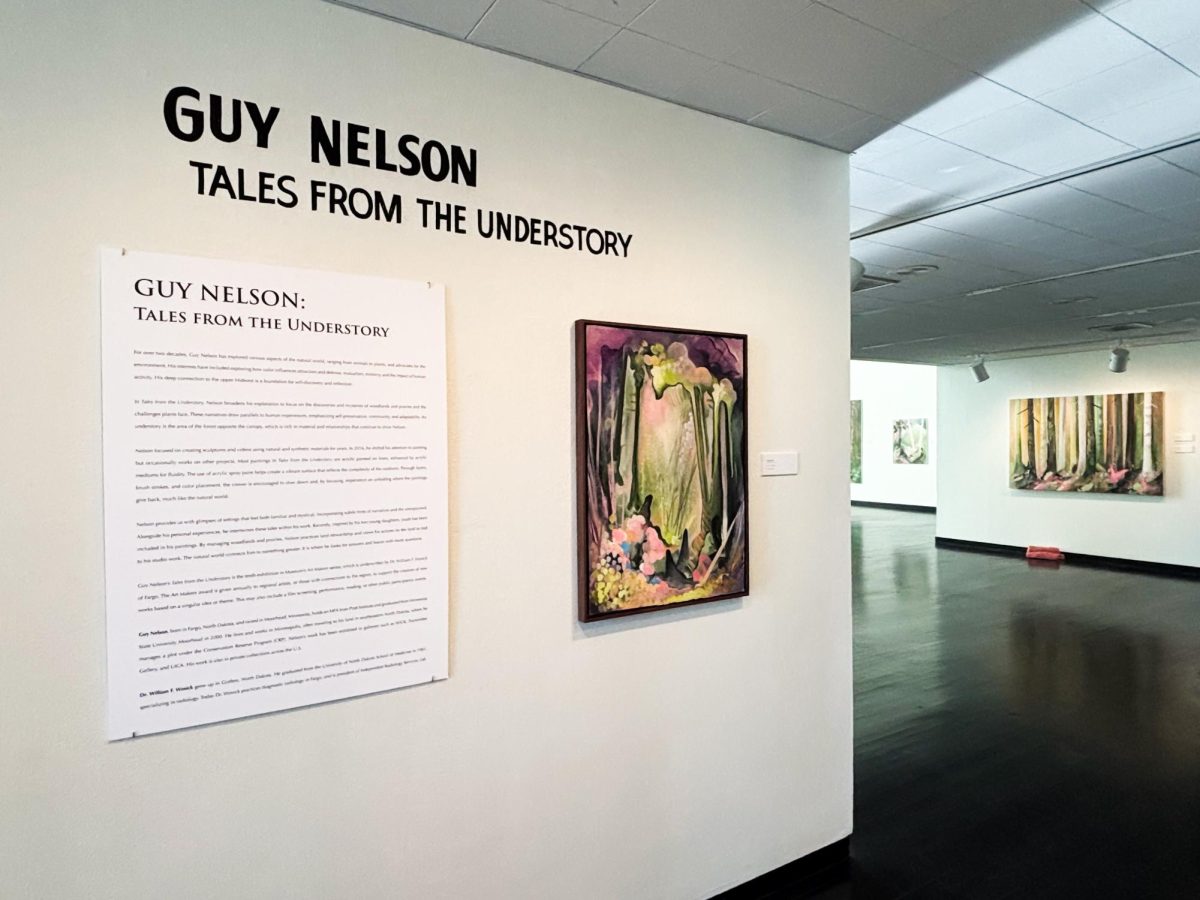UND’s Eye of the Hawk lecture series featured Nobel Peace Prize Laureate Tawakkol Karman who spoke on tyranny and the future of democracy. Karman, loving titled “the mother of the revolution” by her fellow Yemenis, is a human rights activist, politician, and journalist. Awarded the Nobel prize for her work in leading non-violent movements against oppression and corruption such as in the student rallies of the Yemeni Revolution of Dignity, Karman has been a constant advocate for peacefully establishing democracy, equality, and freedom despite the multiple threats on her life. Her experience in leading large-scale change and her fight against dictatorships against these odds made her appearance here at UND a most valuable honor and incredible learning opportunity.
Karman started her lecture highlighting just how small the world has become as communication technology has become so widespread. This “global village” humanity inhabits along with the incredible advances we have made with other sciences and technologies should pave the way for world-wide prosperity. However, Karman stated that this has not been the case. She said, “however, despite this remarkable development [scientific, technological, democratic, etc.], humanity has done nothing… to address the existential challenges threatening its shared future.” Instead, she noted humanity distributes the benefits of globalization and technological development quite unequally thus leading to an unparalleled disparity between the rich and the poor. In addition, she viewed the focus on profit above all else as causing the depletion of mother earth’s resources, environmental degradation, and global warming.
Once Karman established this problem of deep-seated global inequality and the lack of care towards mother earth, she posed the question (not in her exact words), “if we have the technology and democratic philosophy to make the world a better place, why haven’t we used them?” She later stated that she saw nations who claimed to uphold the values of freedom, equality, and democracy support dictatorships in other countries as if they were afraid of the voice and the will of the people they claimed to listen to. Karman asked the audience, “who betrayed the Arab Spring?” In this light it was clear that democracies who failed to show their support for freedom had done so. Karman noted that because of this lack of support and even war mongering from democratic nations and dictatorships actively encourage terrorism, not only to attack other countries, but to oppress their own people.
Thus, Karman made the case that on a global scale, democracy, social and economic equality, freedom, and even the world we live on is rapidly crumbling beneath our feet despite the great advancements we have made. However, she did not end there as she turned towards a more optimistic call for action. In her recounting of the movement towards democracy in Yemen, she stated that the country was divided and oppressed for the sake of control, but when they utilized their most important resource, the people and their voice, they were able to make a meaningful change. She then urged students and faculty members at UND to also remember their responsibilities and “become the voice of people oppressed by tyranny” as our voices hold power to make peaceful movements toward a better future. She declared that she believed in herself, she believed in people, and she armed herself with knowledge and we must do the same as “democracy belongs to everyone.”
Kira Symington is a Dakota Student General Reporter. She can be reached at kira.symington@und.edu.


